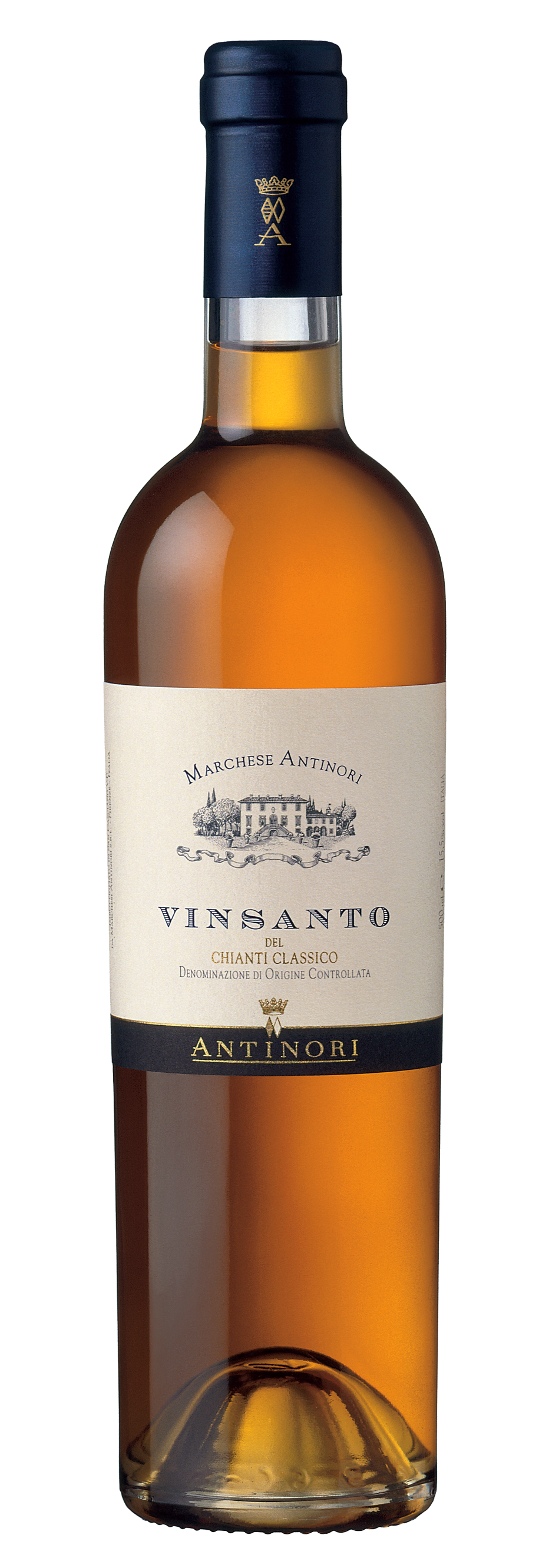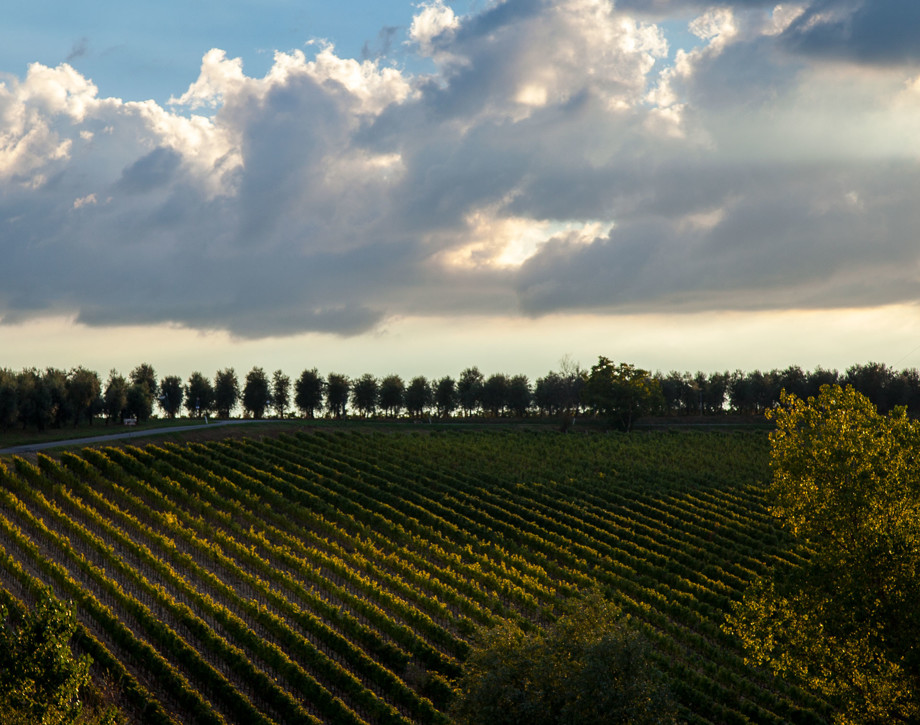Vinsanto Marchese Antinori 2009
Vinsanto
Vinsanto production in Tuscany and in the Chianti Classico region dates back to the Middle Ages. Observing traditional methods and strict production regulations, Vinsanto Tenute Marchese Antinori is produced from selected Trebbiano and Malvasia grapes that are left to dry in a completely natural process requiring time and patience. The resulting wine is intense and pleasing for its generous aromas and soft palate.

Vinsanto
Vinsanto production in Tuscany and in the Chianti Classico region dates back to the Middle Ages. Observing traditional methods and strict production regulations, Vinsanto Tenute Marchese Antinori is produced from selected Trebbiano and Malvasia grapes that are left to dry in a completely natural process requiring time and patience. The resulting wine is intense and pleasing for its generous aromas and soft palate.

Climate
The 2019 growing season in Chianti Classico began with cold winter conditions and very limited rainfall. The first half of spring was cool and rainy, especially during the months of April and May. June brought hot but never extreme weather and higher-than-average levels of precipitation that allowed good growth and development of both canopy and grape clusters. A stretch of beautiful weather kicked in at the end of August through mid-September providing ideal conditions especially for white grape varieties prompting an excellent ripening phase that preserved the freshness and clean pure quality of the fruit. The grape harvest took place September 16th and 17th.
Fermentation and Aging
Grapes for Vinsanto were harvested exclusively from Antinori estate vineyards in the Chianti Classico region. Clusters were carefully selected in the vineyard and placed into small crates; in the cellar they were laid out manually on bamboo mats in the drying room at Tenuta Tignanello. The grapes were left to desiccate until the end of December then were gently pressed to preserve their aromatic and organoleptic qualities. The must was introduced into small casks called caratelli, coopered with different types of wood in sizes varying from 50 to 200 liters where alcoholic fermentation took place. The fermentation process progressed slowly over a lengthy period of time and was then halted. Vinsanto Marchese Antinori was left to age in the caratelli for about 3 years then blended and bottled.
Historical data
The production of Vinsanto in Tuscany goes all the way back to the Middle Ages and the wine is considered a true regional specialty; the Antinori family has always produced it. The first vintage of the Vinsanto Tenute Marchese Antinori (a “natural” Vinsanto, not a fortified wine with alcohol added) was the 1987.
Tasting notes
Vinsanto Marchese Antinori 2019 is amber with copper-colored hues. The nose offers a kaleidoscope of aromas: warm notes of dried apricots, candied orange peels, persimmons and dates meet spicy hints of saffron and amaretti. On the palate, the first perception is a dense, buttery mouth feel followed by savory and linear mid-palate impressions that give the wine length, freshness, and a lively finish.

The Specialties Of The Chianti Region
Chianti Classico is the heart of Tuscany not only from a geographical perspective but also due to its historical and cultural importance, its traditions and for its strikingly beautiful territory. Chianti Classico is home to Marchesi Antinori’s historic estates, a family of winemakers since 1385 who have always been passionate about their ancestral territory. The specialty products produced by Antinori, brandy, grappa, Vinsanto, extra virgin olive oil and vinegar, are all remarkable tributes to Chianti Classico’s rich, generous countryside and its authentic production perfected through centuries of agricultural and viticultural traditions.


















